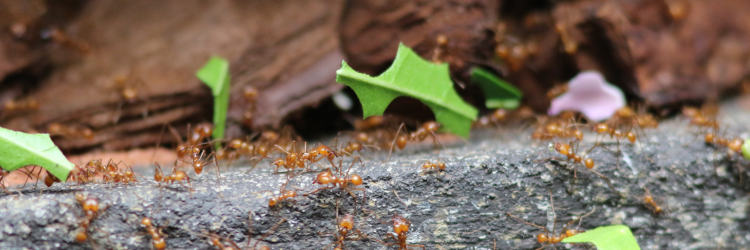Scientists have been looking into bio-products for decades: bio-based fuels, detergents, nutrition, plastics, and more are the results of this research. Many of these products are created by degrading plant materials and converting the resulting matter.
However, Some of these products are difficult and expensive to create and need pollutant substances in their manufacture. Scientists have turned to leafcutter ants for a solution.
A specialized microbial community composed of fungus, leafcutter ants, and bacteria is known to degrade plants naturally. This community turns plant material into nutrients and other components that the surrounding organisms and systems absorb, feeding the environment rather than polluting it. Scientists, however, have had difficulty identifying the components and biochemical reactions within this process.
A team led by Kristin Burnum-Johnson at the Pacific Northwest National Laboratory (PNNL) developed a new imaging method that allows scientists to identify the components and reactions of plant degradation. They used metabolome informed proteome imaging (MIPI) to track the “what, when, and where” that make plant degradation possible.
The researchers studied a type of fungus known for its symbiotic relationship with Leucoagaricus gongylophorus, a species of leafcutter ants. The ants use the fungus to create a fungal garden that degrades plant polymers and other material, leaving matter used by organisms within the garden to thrive.
“Environmental systems have evolved over millions of years to be perfect symbiotic systems,” Burnum-Johnson said. “How can we better learn from these systems than by observing how they accomplish these tasks naturally?”
The new MIPI imaging system allows scientists to see exactly what is occurring, when it occurs, and why it does so throughout the process. This knowledge can help them create more sustainable bioproducts.
The team published its research in Nature Chemical Biology.

